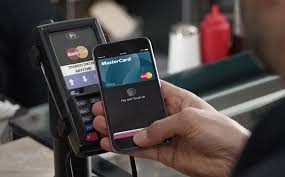In today’s digital landscape, the need for secure and reliable internet connections has grown exponentially. Among various proxy solutions available, мобильные stand out due to their versatility and effectiveness. These proxies are becoming increasingly popular for businesses, marketers, and individuals seeking enhanced online privacy, efficient data scraping, or seamless access to geo-restricted content. This article explores what mobile proxies are, how they work, and why they are considered a game-changer in the world of proxies.
What Are Mobile Proxies?
A mobile proxy routes your internet traffic through a mobile device connected to a mobile network. Essentially, it uses an IP address assigned by mobile carriers like AT&T, Verizon, or Vodafone. These IP addresses are typically dynamic, meaning they change frequently, making them harder to track and block.
Unlike traditional data center proxies, which use static IP addresses, mobile proxies are tied to real mobile devices. This makes them appear more legitimate to websites and online platforms since they mimic genuine user behavior.
How Do Mobile Proxies Work?
Mobile proxies operate by channeling your internet requests through a mobile device acting as an intermediary. Here’s a simplified breakdown:
- User Request: A user sends a request to access a website or online service.
- Proxy Routing: The mobile proxy forwards this request to the destination website, using its own mobile network IP address.
- Response Delivery: The website processes the request, and the proxy retrieves and forwards the response back to the user.
This process not only anonymizes the user but also makes it appear as if the request originated from a mobile device.
Why Are Mobile Proxies So Unique?
Mobile proxies offer several distinct advantages over other types of proxies:
- Legitimacy: Websites often treat mobile IP addresses as more trustworthy since they belong to real mobile carriers.
- Dynamic IP Rotation: Frequent IP changes reduce the risk of detection, bans, or restrictions.
- Geo-targeting: Mobile proxies allow users to emulate specific locations, providing access to geo-restricted content or region-specific data.
- High Anonymity: They mask user identities effectively, making them ideal for activities requiring privacy, such as social media automation or competitive research.
Key Use Cases for Mobile Proxies
Mobile proxies have a broad range of applications, making them valuable for both individuals and businesses:
- Social Media Management
Managing multiple accounts on platforms like Instagram, TikTok, or Facebook often triggers security flags. Mobile proxies help bypass these restrictions by providing unique, legitimate IPs that appear as regular mobile users. - Data Scraping
For businesses involved in competitive analysis or price monitoring, data scraping is essential. Mobile proxies allow users to scrape data without getting blocked, thanks to their dynamic and legitimate IP addresses. - Ad Verification
Digital advertisers can use mobile proxies to ensure their ads are displayed correctly across various locations and devices, preventing ad fraud. - Accessing Geo-restricted Content
Whether it’s streaming regional shows or accessing localized search results, mobile proxies enable seamless navigation through geographic limitations. - Avoiding Captchas
Many websites implement captchas to detect automated activity. Mobile proxies reduce the likelihood of encountering captchas, as they resemble genuine user behavior.
Challenges of Mobile Proxies
While mobile proxies offer numerous benefits, they come with certain challenges:
- Cost: Mobile proxies are typically more expensive than data center proxies due to their limited availability and high demand.
- Speed: Since mobile networks are slower than data centers, users might experience reduced connection speeds.
- Ethical Considerations: Some mobile proxy providers acquire their IPs through questionable methods, such as using unsuspecting mobile device owners’ connections. It’s crucial to choose a reputable provider.
How to Choose the Right Mobile Proxy Provider
When selecting a mobile proxy provider, consider the following factors:
- Reputation: Look for providers with positive reviews and transparent practices.
- IP Pool Size: A larger pool of IP addresses reduces the risk of detection and bans.
- Geo-coverage: Ensure the provider covers the regions you need to target.
- Customer Support: Reliable support can help resolve issues promptly.
Conclusion
Mobile proxies are a powerful tool in the proxy ecosystem, offering unmatched legitimacy, anonymity, and versatility. From social media management to data scraping, their use cases continue to expand as more businesses and individuals recognize their value. However, choosing the right provider and using them ethically are critical to maximizing their benefits.
In a world where online privacy and unrestricted access are becoming increasingly important, mobile proxies provide a robust solution for navigating the complexities of the digital age.

